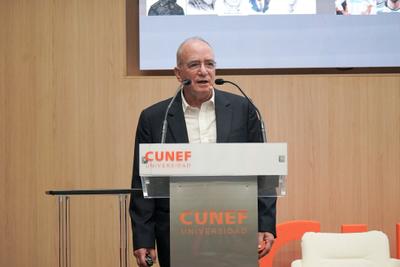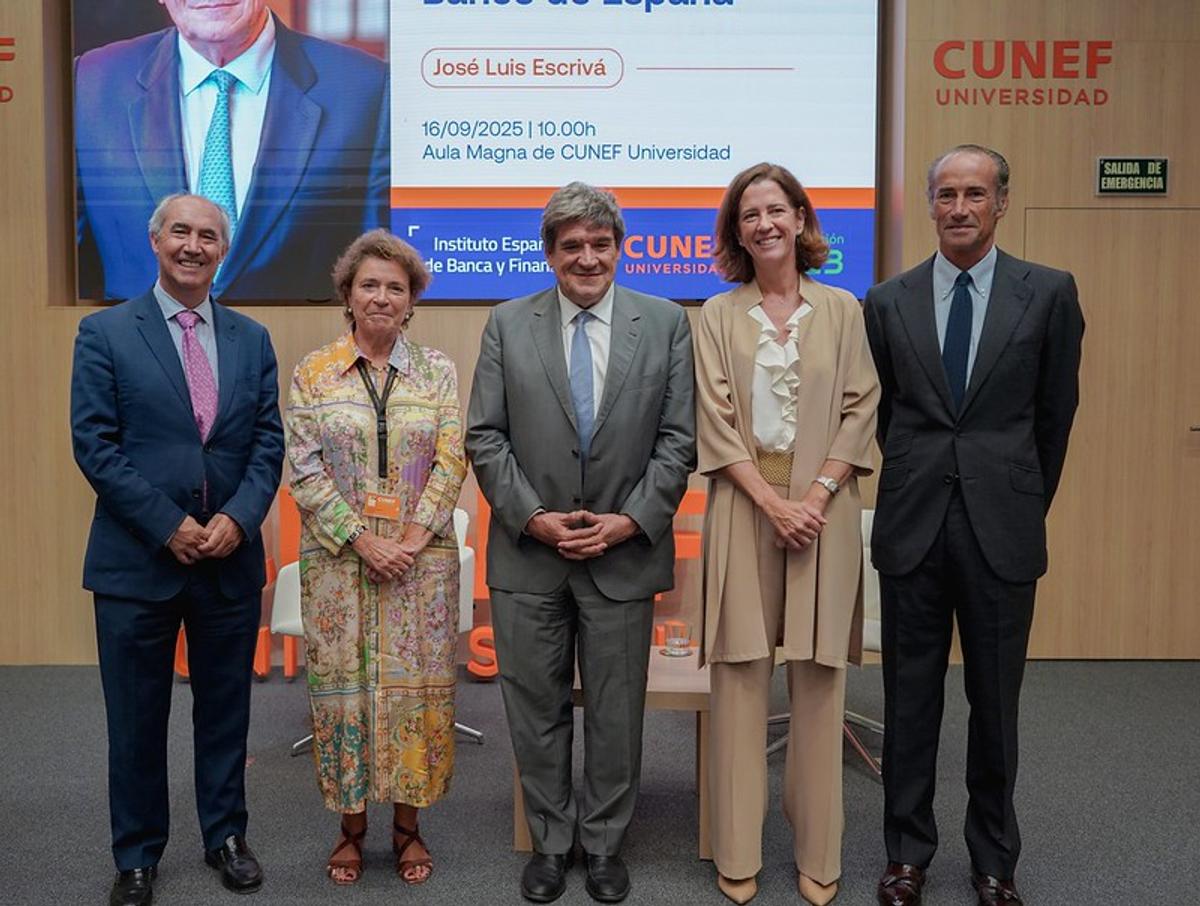
- Home
- The governor of Banco de España calls for enhanced STEM degrees to regain European leadership

The governor of Banco de España calls for enhanced STEM degrees to regain European leadership
16 September 2025
This morning, the Spanish Banking and Finance Institute (IEBF) hosted a discussion between José Luis Escrivá, Governor of Banco de España, and CUNEF Universidad students. During the session, held in the Auditorium of the Almansa Campus, Mr Escrivá stressed that Europe “must recover a predominant role by implementing reforms and following a precise and irreversible calendar”, as it did when it introduced the Euro. He also insisted that, in order to regain strong leadership, “we need a lot of human capital, and we must enhance STEM degrees and technological profiles, as well as infrastructures”, including data processing centres and supercomputing.
The Governor of Banco de España also mentioned that Spain “specialises in relatively low productivity sectors”, such as the service industry. This is why he argues for “fostering innovation, R+D and patents, to ensure that the findings of universities and research centres are transferred and absorbed across the economy, because they affect the entire productive system”. He considers that we must “look at the medium term, to allow all these technologies to become more productive”.
The opening speech was given by Alejandra Kindelán, Chair of the Spanish Banking Association (AEB) and Fundación AEB. Ms Kindelán emphasised Banco de España’s mission as “warrantor of financial stability in a context of global tensions, uncertainty and risk”. She also pointed out that in this geopolitical context “we need a new way of dealing with a changing and turbulent international reality, which requires measures that go beyond those implemented to respond to the great financial crisis”. This is why she supports the idea of a new stage that “addresses an agenda of regulatory and supervisory simplification that enables us to grow and be more competitive”.
After the opening speech by the Chair of the AEB, the Director of the Spanish Banking and Finance Institute, Manuel Balmaseda, asked José Luis Escrivá about the future of monetary policy. Mr Escrivá said that, right now, “the environment is highly uncertain; the most predictable scenario is materialising, but that does not mean that unforeseen situations cannot arise”. The governor stressed the importance of “being agile, ready
to move in any direction”. Regarding specific measures taken by Banco de España, he mentioned the capital buffer that is being implemented and will end within a year, and stated that the bank is “looking at the possibility of establishing mechanisms and limits on credit standards”. “The Spanish banking system manages its credit policy with caution and rigour”, concluded Mr Escrivá.
Likewise, the governor of Banco de España argued for policies designed in line with the principles of the “three T’s” (timely, targeted, and temporary). “Every time the economy suffers disruptions that require specific public intervention, we must follow these policies because, otherwise, we will come out of these situations with high public spending and greater debt issues,” he remarked. This is why he calls for well-targeted public policies that have a clear intention and are easy to reverse.
Finally, future CUNEF Universidad graduates received useful advice from Mr Escrivá, who stressed that they should “try to form their own opinion by going deeper, challenging ideas and applying the scientific method to their environment, with a highly interdisciplinary approach”. In this sense, he stated that “our world requires more interconnection between fields: economic, technical, instrumental and social sciences”. José Luis Escrivá underlined the importance of a cooperative attitude, specialisation and humility, and highlighted the effort that CUNEF Universidad is making to combine all these aspects in its students’ education.
